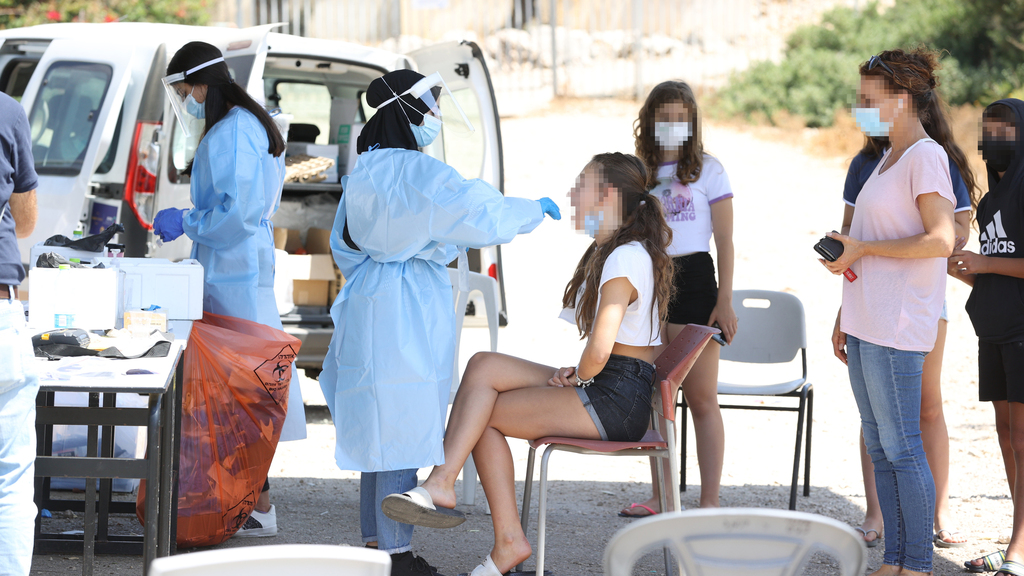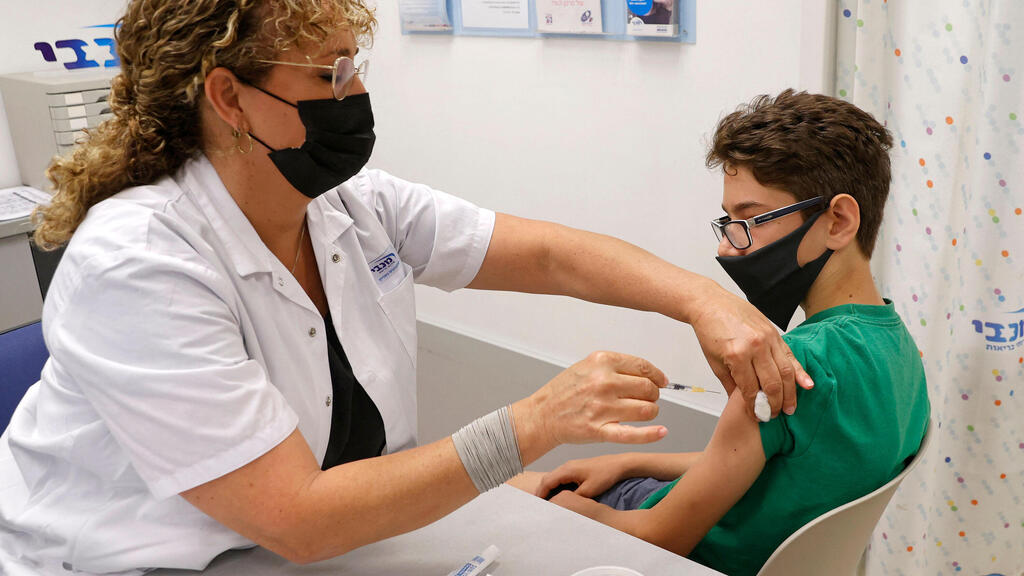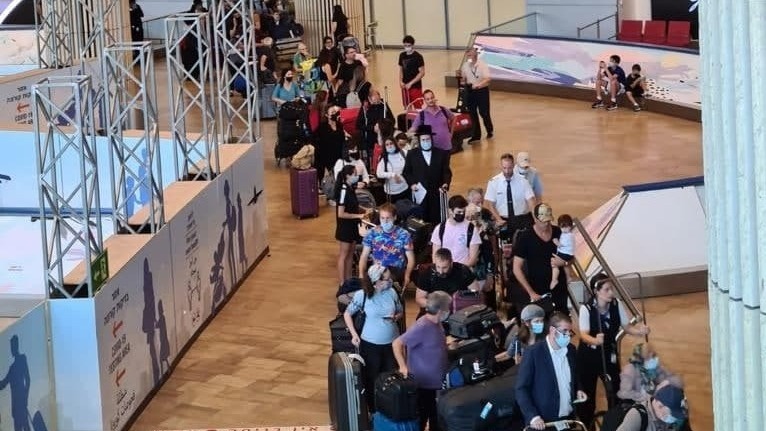Israel's health officials said on Sunday they were considering reinstating some coronavirus restrictions after coronavirus outbreaks were reported around the country, which are believed to have been sparked by the Indian strain of COVID-19.
The announcement came after virus outbreaks were detected in schools in the cities of Modi'in and Binyamina as well as in the Jordan Valley. As a result of the outbreaks, the daily test positivity rate spiked from a rolling one-month average of 0.1% to 0.3% on Saturday and 0.6% on Monday, Health Ministry data showed.
3 View gallery


School children in Binyamina being tested on Sunday after outbreak was detected in local school
(Photo: Elad Gershgorn)
Director General of the Health Ministry Hezi Levi said on Sunday that the ministry will issue a recommendation to vaccinate all teens aged 12 to 15 against coronavirus following the outbreaks.
Earlier recommendation issued by the ministry limited the call to vaccinate teens to those who suffer from underlying health conditions or those who have family members at risk from the disease.
Levi told Kan Public Radio that additional measures were under consideration and reiterated the ministry's position that people at risk should continue to use face masks indoors to prevent contagion.
3 View gallery


A 12-year old boy receives his coronavirus vaccine in Tel Aviv earlier this month
(Photo: AFP)
On Sunday, the ministry reinstated the mask mandate in the areas where outbreaks were detected, almost one week after it was lifted.
The ministry appears to be concerned the outbreaks were caused by the so-called Delta variant, which originated in India, after some Israelis returned to the cities where infection have been recorded from countries with high contagion rates without entering quarantine upon arrive.
An IDF report published on Sunday showed the variant was 60% more contagious than the British stain, dominant in Israel, and led to 2.5 times more hospitalizations.
After consultations with health officials late on Sunday, Prime Minister Naftali Bennett instructed police to assign more forces that would enforce quarantine for travelers. Bennett also told the Health Ministry to expand the coronavirus testing site at the Ben Gurion International Airport to meet the growing demand there.
3 View gallery


People line up to be tested for coronavirus at Ben Gurion airport on Sunday
(Photo: Ynet)
In addition, Ynet has learned that over the past month, more than 10,000 people arrived from countries where contagion is high including Russia the UAE and Ethiopia. Prof. Levi said 168 of them were confirmed to have been infected with the virus.
On Friday, some 3,000 people left the airport without having been tested after the testing site was unable to handle the high volume of passengers. Long lines were reported on Sunday and some passengers also said they were not tested before leaving the terminal building.
Israelis departing abroad will be required to fill out a declaration that they are not traveling to high-risk countries including Argentina, Russia, India, South Africa, Mexico and Brazil.

